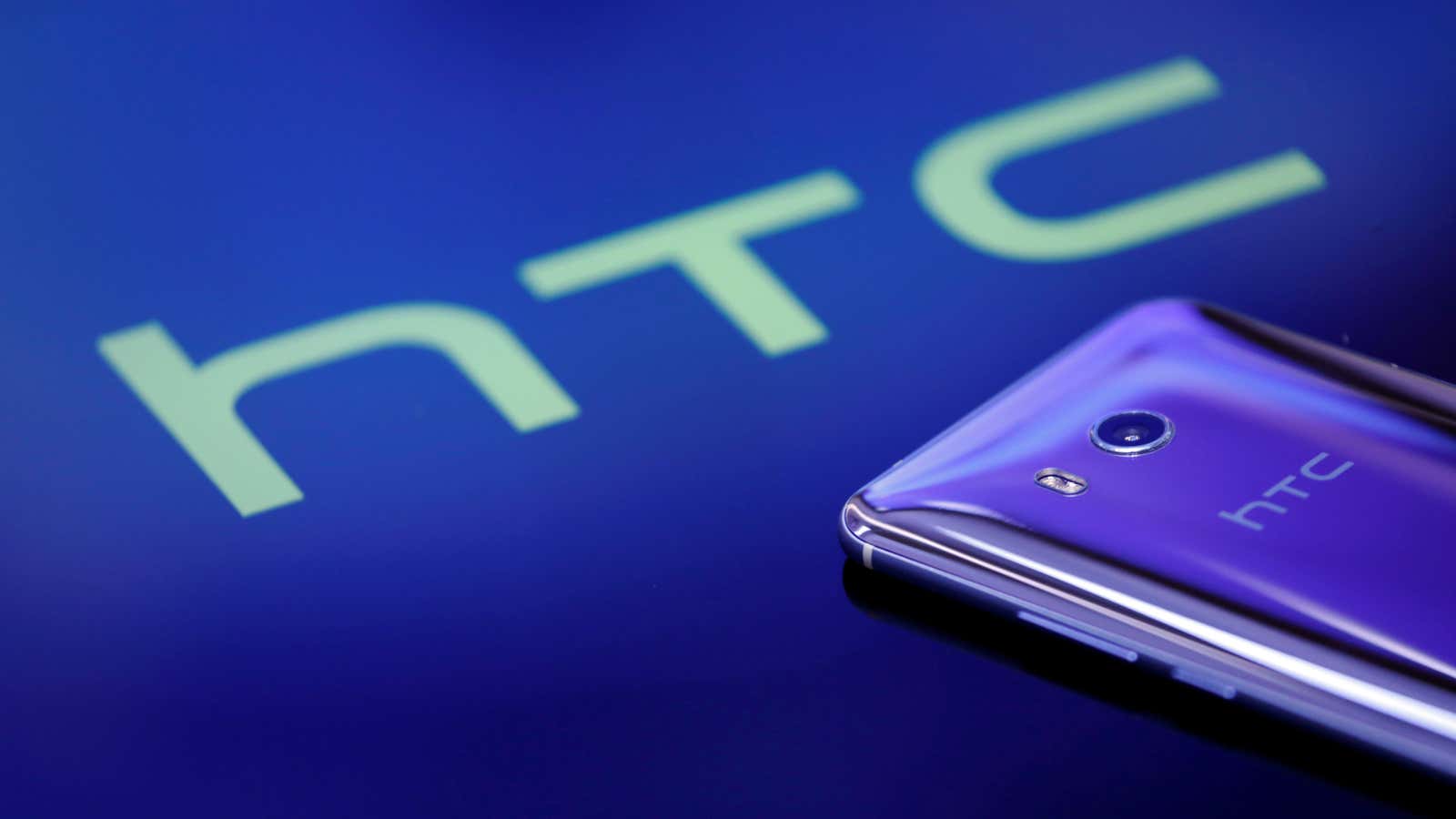To keep its smartphone dreams alive, Google is turning to a brand that’s fading fast.
On Thursday (Sep. 21) the search giant signed an agreement with HTC to pay $1.1 billion to the Taiwan-based smartphone maker. In exchange, HTC staff will join Google’s hardware division, headed up by former Motorola president Rick Osterloh, to help make smartphones and other devices. Google will also obtain a “non-exclusive license” to some of HTC’s intellectual property.
At a press conference in Taipei, HTC CFO Peter Shen said that about 2,000 employees would move to Google. The agreement does not preclude HTC from continuing to make and sell phones on its own, under its own brand.
The deal comes as Google is advancing its ambitions in hardware, as well as its next wave of software and artificial intelligence. The company makes most of its revenue by selling ads on its search engine. But it also has developed a number of hardware devices and related software services—the Chromecast dongle supports streaming media in the Play store, and the Google Home device supports Google Voice, the company’s AI-powered voice assistant. Smartphones are one product that Google can plant its fledgling software onto, particularly Google Voice. Apple continues to push Siri in its iPhones and Samsung, the top Android player globally, is developing a voice assistant called Bixby. By bringing thousands of HTC employees under its roof, Google can have better control over the hardware that could ultimately determine which voice assistant becomes the most popular.
There are plenty of reasons to be skeptical that HTC will help Google achieve this, though. For one thing, Google has a weak track record when it comes to selling smartphones—and hardware in general. The company has worked with smartphone brands in the past to sell its Nexus and year-old Pixel lines of devices, including HTC, which has designed devices for both. Google uses these devices to promote a bloatware-free, Google-centric version of Android. But those products have never reached the mass market—and if Google intends to popularize its voice assistant or other software offerings, its phones will have to reach iPhone or Galaxy-level sales. Its next Pixel device, designed by HTC, is set to hit shelves next month.
“The hardware market is still largely dependent on scale,” says Xiaohan Tay, who follows the smartphone industry at research firm IDC. “The Pixel is priced at a very premium price, and it’s competing with Apple and Samsung.”
The company’s earlier hardware purchases have also not brought much success. In 2012 the company paid $12.5 billion to purchase Motorola Mobility, only to sell it to Lenovo for $2.91 billion. While some described the purchase as an attempt to scoop up patents, those patents turned out to be worth far less than what Google paid for them, and Motorola’s phone division lost hundreds of millions of dollars each quarter when it was part of the search giant. In other hardware, Google’s $3.2 billion purchase of smart thermostat maker Nest brought in underwhelming sales (paywall), and lots of acrimony internally.
Meanwhile, HTC doesn’t have much to offer Google beyond its ability to make phones. Sales-wise, the company’s glory days are well beyond it. In 2010 the company once had a respectable 7.7% of the global smartphone market, according to research firm according to Counterpoint. Now, it has just 0.4%—as Samsung, Huawei, and the collective bevvy of low-end, no name Android brands have eclipsed it.
